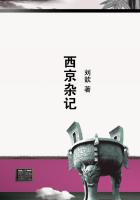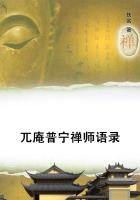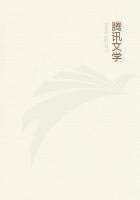As to the religious condition of the Vedic Aryans, we must steadily remember that in the Vedas we have the views of the Rishis only, that is, of sacred poets on their way to becoming a sacred caste.
Necessarily they no more represent the POPULAR creeds than the psalmists and prophets, with their lofty monotheistic morality, represent the popular creeds of Israel. The faith of the Rishis, as will be shown later, like that of the psalmists, has a noble moral aspect. Yet certain elements of this higher creed are already found in the faiths of the lowest savages. The Rishis probably did not actually INVENT them. Consciousness of sin, of imperfection in the sight of divine beings, has been developed (as it has even in Australia) and is often confessed. But on the whole the religion of the Rishis is practical--it might almost be said, is magical. They desire temporal blessings, rain, sunshine, long life, power, wealth in flocks and herds. The whole purpose of the sacrifices which occupy so much of their time and thought is to obtain these good things. The sacrifice and the sacrificer come between gods and men. On the man's side is faith, munificence, a compelling force of prayer and of intentness of will. The sacrifice invigorates the gods to do the will of the sacrificer; it is supposed to be mystically celebrated in heaven as well as on earth--the gods are always sacrificing. Often (as when rain is wanted) the sacrifice imitates the end which it is desirable to gain. In all these matters a minute ritual is already observed.
The mystic word brahma, in the sense of hymn or prayer of a compelling and magical efficacy, has already come into use. The brahma answers almost to the Maori karakia or incantation and charm. "This brahma of Visvamitra protects the tribe of Bharata.""Atri with the fourth prayer discovered the sun concealed by unholy darkness." The complicated ritual, in which prayer and sacrifice were supposed to exert a constraining influence on the supernatural powers, already existed, Haug thinks, in the time of the chief Rishis or hymnists of the Rig-Veda.
Compare "The Prayers of Savages" in J. A. Farrer's Primitive Manners, and Ludwig, iii. 262-296, and see Bergaigne, La Religion Vedique, vol. i. p. 121.
See texts in Muir, i. 242.
Preface to translation of Aitareya Brahmana, p. 36.
In many respects the nature of the idea of the divine, as entertained by the Rishis of the Rig-Veda, is still matter for discussion. In the chapter on Vedic gods such particulars as can be ascertained will be given. Roughly speaking, the religion is mainly, though not wholly, a cult of departmental gods, originally, in certain cases, forces of Nature, but endowed with moral earnestness. As to fetishism in the Vedas the opinions of the learned are divided. M. Bergaigne looks on the whole ritual as, practically, an organised fetishism, employed to influence gods of a far higher and purer character. Mr. Max Muller remarks, "that stones, bones, shells, herbs and all the other so-called fetishes, are simply absent in the old hymns, though they appear in more modern hymns, particularly those of the Atharva-Veda. When artificial objects are mentioned and celebrated in the Rig-Veda, they are only such as might be praised even by Wordsworth or Tennyson--chariots, bows, quivers, axes, drums, sacrificial vessels and similar objects. They never assume any individual character;they are simply mentioned as useful or precious, it may be as sacred."
La Religion Vedique, vol. i. p. 123. "Le culte est assimilable dans une certaine mesure aux incantations, aux pratiques magiques." Hibbert Lectures, p. 198.
When the existence of fetish "herbs" is denied by Mr. Max Muller, he does not, of course, forget Soma, that divine juice. It is also to be noted that in modern India, as Mr. Max Muller himself observes, Sir Alfred Lyall finds that "the husbandman prays to his plough and the fisher to his net," these objects being, at present, fetishes. In opposition to Mr. Max Muller, Barth avers that the same kind of fetishism which flourishes to-day flourishes in the Rig-Veda. "Mountains, rivers, springs, trees, herbs are invoked as so many powers. The beasts which live with man--the horse, the cow, the dog, the bird and the animals which imperil his existence--receive a cult of praise and prayer. Among the instruments of ritual, some objects are more than things consecrated--they are divinities; and the war-chariot, the weapons of defence and offence, the plough, are the objects not only of benedictions but of prayers." These absolute contradictions on matters of fact add, of course, to the difficulty of understanding the early Indo-Aryan religion. One authority says that the Vedic people were fetish-worshippers; another authority denies it.
Barth, Les Religions de l'Inde, p. 7, with the Vedic texts.
Were the Rishis ancestor-worshippers? Barth has no doubt whatever that they were. In the pitris or fathers he recognises ancestral spirits, now "companions of the gods, and gods themselves. At their head appear the earliest celebrants of the sacrifice, Atharvan, the Angiras, the Kavis (the pitris, par excellence)equals of the greatest gods, spirits who, BY DINT OF SACRIFICE, drew forth the world from chaos, gave birth to the sun and lighted the stars,"--cosmical feats which, as we have seen, are sometimes attributed by the lower races to their idealised mythic ancestors, the "old, old ones" of Australians and Ovahereroes.
A few examples of invocations of the ancestral spirits may not be out of place. "May the Fathers protect me in my invocation of the gods." Here is a curious case, especially when we remember how the wolf, in the North American myth, scattered the stars like spangles over the sky: "The fathers have adorned the sky with stars".
Rig-Veda, vi. 52,4.
Ibid., x. 68, xi.

